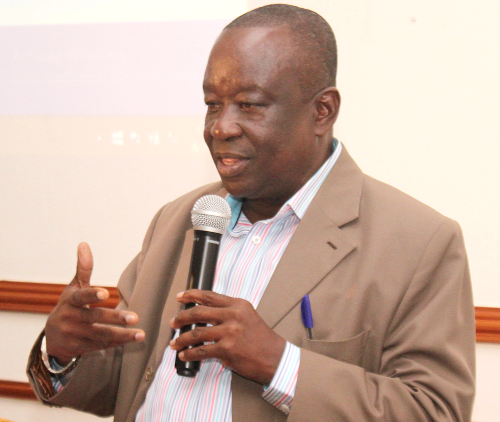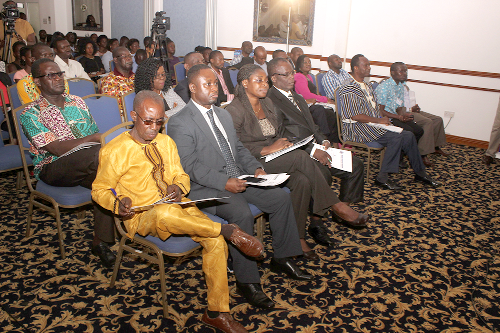
Public officers must show source of wealth
A former Accountant General, Prof. J. B. Ato Ghartey, has advocated the inclusion of how public officers acquire their wealth in the assets declaration regime of the country.
Advertisement
He said that would enable the public to track funds that had been dissipated, as a public servant’s lifestyle had to match with the assets he or she acquired.
Prof. Ghartey made the call in a keynote address at the first anti-corruption forum jointly organised by the Ghana Integrity Initiative (GII) and the Commission on Human Rights and Administrative Justice (CHRAJ) in Accra yesterday.
Supported by the Danish International Development Agency (Danida), the programme was organised to take stock of all the anti-corruption campaigns, the state of the National Anti-Corruption Action Plan and the status of the Right to Information Bill.
Sourcing of assets
Prof. Ghartey also outlined some challenges that had persisted since 1960 when corruption was first criminalised.
He said the challenges included the excessive power wielded by an Executive President, docility of constitutional bodies such as the Council of State in holding the President accountable and provisions that made the council’s recommendations non-binding, pointing out that these resulted in the lack of balance of power in governance.
“Additionally, when it comes to a balance sheet audit in relation to accountability, the wealth of public officers cannot easily be traced,” he said.
Therefore, he strongly advocated for the declaration of assets to be done together with a declaration of how the assets were acquired.
Justice Emile Short
A former Commissioner of CHRAJ, Mr Justice Emile Short, who chaired the function, said reports by the Auditor General, the existence of ‘ghost’ names on the public payroll and election malpractices all pointed to the need for the campaign on corruption to be intensified.
He brought into focus the Afro Barometer and the 2015 Transparency International report that listed Ghana, Nigeria and South Africa as the three worst performing countries in relation to corruption.

Mr Justice Short noted that although corruption was a subject most discussed in the country, it had lost the stigma attached to it.
He expressed optimism about the prospects of the National Anti-Corruption Action Plan (NACAP), the national policy document, consolidating all efforts towards the fight against corruption.
He listed some of the short-term strategies in the NACAP and expressed the hope that the forum would accelerate action on them.
Learn good practices
The Board Chairman of the GII, Mr Kwame Gyasi, in his remarks, urged all politicians to read the speech by the British Prime Minister, David Cameron, delivered right after the country’s referendum to exit the European Union and learn about good governance.
He wondered why the country was divided over whether a gift of a Ford Expedition vehicle worth more than a $100,000 was a bribe or not, pointing out that in some jurisdictions, that would have resulted in the resignation of public officers.
An advisor on Governance at the Office of the President, Mr Daniel Batidam, emphasised that the fight against corruption was a collaborative one.
The Executive Director of the GII, Mrs Linda Ofori-Kwafo, in her remarks, described directives for public officials to refund money misappropriated as a “timorous approach” in the fight against corruption.
Writer's email: [email protected]




